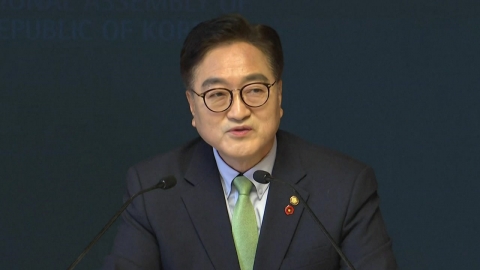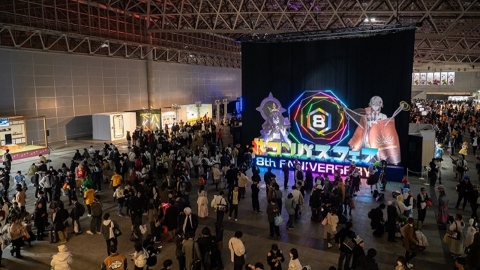■ Host: Reporter Cho Tae-hyun
■ Air date: December 20, 2024 (Friday)
■ Talk: Lee Sun-yeop, Director of Shinhan Investment & Securities
* The text below may differ from the actual broadcast content, so please check the broadcast for more accurate information.
◆ Announcer Park Sang-yeon (hereinafter referred to as Park Sang-yeon): Reliable information for 14 million investors. Useful information. Above all, it's time to give you money information. Live Stock Institute Today is the jewel of the live economy. With Lee Sun-yeop, director of Shinhan Investment & Securities. The director is out, right?
◇ Lee Sun-yeop, Director of Shinhan Investment & Securities (hereinafter referred to as Lee Sun-yeop): Yes, how are you?
◆ Park Sang-yeon: Yes, hello. After the announcement of the New York Stock Exchange's FOMC benchmark interest rate, it closed sharply, but it ended mixed last night. For now, can we see that it's back to calm down?
◇ Lee Sun-yeop: Yes, overall, I think the decline due to FOMC has calmed down to some extent. However, the performance of companies seems to be holding back a little. As you know, Micron Technology fell sharply today. As the aftermath is also affecting our market, the flow for the entire U.S. market is important, but I think we need to take a closer look at the flow for individual companies.
◆ Park Sang-yeon: Yes, we'll look at that later. The FOMC rate cut was expected. I don't think the market was simply fluctuating because of the announcement of the interest rate cut, but was it big that it predicted the pace adjustment in the end?
◇ [Lee Sun-yeop] Yes, that's right. It was also expected to go hawkish to some extent. So, not long ago, Nick Timiraos of the Wall Street Journal is known as the Fed's confidence that the U.S. will cut interest rates this time, but will adjust its pace a little in the future. I think the market is determined to some extent because he has already said it, but the reason why the decline was so big is that the U.S. stock market has been too high. Overall, the inflow of funds from the global market to the U.S. is progressing very significantly, and as of not too long ago, more than 260 trillion won was concentrated in the U.S. based on almost a month. As all the world's money is concentrated in the United States, of course, U.S. stocks would have gone up more, good or bad, and it would be correct to think that those parts served as an excuse for profit-making according to interest rate decisions. Some such movements have already appeared in the index. Given that the Dow fell at the time for nine consecutive days, I think the U.S. market was already too overheated to take a break, but I assume that after the Nasdaq and Big Tech, it was more profitable than after the FOMC.
◆ Park Sang-yeon: I see. Was it a measure conscious of the second Trump administration that the Fed hinted at such a cautious rate cut?
◇ [Lee Sun-yeop] Yes, that's right. I think that aspect is very strong. Of course, there may be some areas where the economy is solid, but overall, it is known that most of the policies from Trump's second term have many factors that can stimulate prices. If Trump uses up the policy as he wants during the second Trump period, it is said that it will increase by more than 2 percentage points from the current state in terms of prices. Then, the prices of mid-to-late 2% or 2.7% are coming out now, and if the prices are in the mid-to-mid 4% range, it will be very burdensome. Therefore, I checked it first because I had to decide the policy based on how much of this policy will become a reality after Trump. I think you can see it like this, and overall, I will decide what policy and how to use it after Trump. So it's currently said that he won't make a decision in January, and even after that, Trump has been cautious to take monetary policy according to the intensity of the policy, what tariffs depending on the country, and whether tariffs are based on volume.
◆ Park Sang-yeon: You think it's because inflationary uncertainty about economic policy has grown a little before the Trump administration's inauguration. The problem is the exchange rate. After the FOMC announcement, the won-dollar exchange rate exceeded 1,450 won during the day. This has been considered a kind of psychological resistance line, isn't it at that level 15 years ago during the financial crisis?
◇ [Lee Sun-yeop] Yes, that's right. It's currently up to the level of the financial crisis, and looking at it now, it's over 1450 won. It went up by about 3 won today. As you know, the exchange rate itself is a problem, and the exchange rate itself is a problem. Of course, the strong dollar will affect the U.S. interest rate, but domestic demand is likely to be worse due to political turmoil after the recent declaration of martial law in relation to the domestic economy. Of course, if domestic demand worsens, the Bank of Korea has to lower interest rates further. However, if the U.S. lowers interest rates less, the gap between Korea and the U.S. will inevitably widen if we lower rates more, and these can naturally ignite the weakening of the exchange rate, which can be a very burdensome material for the domestic exchange rate market.
◆ Park Sang-yeon: In some cases, the psychological resistance level will rise to 1,500 won. There's a prospect like this, so what do you think of it?
◇ Lee Sun-yeop: I remember Nomura Securities also released such a report yesterday. Many people say that it will go up to 1,500 won this time, but I think that's too much. Looking at the exchange rate itself, it seems that it is somewhat overreacting compared to the fundamentals of our economy as a whole. However, there is no breakthrough so far, and as you all know, political uncertainty still persists, right? In addition, in the case of the United States, there is no significant reversal yet, as it is surrounded by uncertainty about what will happen to prices. Nevertheless, in order to reach 150 billion won or more, there is a high possibility that we will have to face a little more bad news. For now, despite political uncertainty, 1,500 won is a little too much for us in terms of the fact that it does not worsen from here but still goes through the steps to resolve it.
◆ Park Sang-yeon: 1,500 won is too much, but there are concerns that the 'strong dollar' trend will continue anyway, so wouldn't this put more downward pressure on our stock market? What do you think?
◇ [Lee Sun-yeop] That's right. Naturally, the weak won in Korea is a factor for foreigners to leave the stock market. In the case of foreigners, the fact that they can lose money at the exchange rate even if they just hold stocks is a huge burden on our market, and of course, the weak exchange rate itself means that the weak won itself means sluggish domestic demand, which can be seen as a major burden in that domestic companies can expect sluggish performance. However, it seems clear in the current situation that the weak won can be a factor in improving performance above all for exporters due to these political factors. In the long run, I don't know if domestic political uncertainty can be negative for exports, but if you look at the fourth quarter or the first quarter right now, that impact should be limited. Therefore, considering that the proportion of export-related companies in the Korean market is quite high, it is burdensome to us, but I think the negative impact on the stock market will be limited. It's because of semiconductors that are missing today. I think the impact of the exchange rate is about 10% to 20%.
◆ Park Sang-yeon: Yes, let's continue talking about the New York stock market. The shutdown of Congress is being discussed as another source of anxiety while investors' anxiety has not been completely resolved yet. There is also a possibility that the nightmare of the first Trump period will be reproduced, so how should I look at this part?
◇ Lee Sun-yeop: I think political uncertainty has begun in earnest in the United States. If many people remember Trump's first term, I think there are memories of some market fluctuations caused by Trump. The same goes for the shutdown this time. In the end, from Trump's point of view, let's abolish the debt limit. I think it simply means that the U.S. government should open the way so that it can spend a lot of money. You know that Congress has no choice but to oppose this, but you can think of it as a check on the fact that the U.S. fiscal deficit is so severe and has so much debt. Some of these political uncertainties are likely to persist in the future, but these political uncertainties, especially those related to these shutdowns, are factors of fluctuation in the index, not directional factors. So, it's not like the index turns downward due to this, so if there's such a change, I think it's good to use it as a buying opportunity.
◆ Park Sang-yeon: I think we need to keep an eye on the situation. Dow bounces back after 11 trading daysMa saw an all-time decline. It's been almost 10 days in a row, and it's been almost 50 years. Where do you think the biggest reason for the Dow's decline?
◇ Lee Sun-yeop: In a way, I think the Dow is fully reflective of the U.S. economy. Looking at the stocks gathered like this in the Dow, I think it is necessary to look at it for now, given that there are quite a lot of stocks related to the old economy and traditional stocks. The U.S. economy is not very good right now, but it is very good because the U.S. AI-related big tech companies and the commonly called Magnificent 7 stocks are good, but the proportion of these stocks in the Dow is much smaller than expected. As a result, when you go to the United States, the U.S. economy is having a lot of difficulties due to prices. You can think of it as the Dow that reflects these points. On the other hand, Nasdaq and S&P 500 are showing a different appearance because these differences have occurred because the related indices are more expressed in relation to AI.
◆ Park Sang-yeon: Let's take a closer look. NVIDIA, which had been weak for a while, succeeded in rebounding last night, but this week, it hardly gained strength. Where do you think the reason is?
◇ I think there are two main things. The first is the chip that Nvidia was supposed to announce, and as you probably know, there's a chip called H100 that we know, and it's usually called a hopper chip, but the next high-performance chip that needs to be released is the Blackwell chip. There have been recent concerns that the Blackwell chip could be released a little later than originally expected. Technically, we're bickering with TSMC right now, and there's even a question of who's responsible for the defects. So, the first thing I had was that I had concerns about this. The second is associated with a recent rise in Broadcom. What Broadcom does is a company that designs GPUs related to Nvidia that we know now. Recently, Amazon and other big tech companies said they would use chips that fit me without using Nvidia. If you look at it that way, there may be some monopoly related to Nvidia in the future. So, Nvidia is almost monopolizing all GPU-related constructions. It's no exaggeration to say that big tech companies are moving to get out of here. It can be said that Nvidia has been shaken a little by some of these concerns.
◆ Park Sang-yeon: I see. Another thing to point out is Broadcom, right? US semiconductor company Broadcom This week, it almost threatened Nvidia shares. How much impact do you think it has?
◇ Lee Sun-yeop: I think it's a little different from what Broadcom is doing and Nvidia as we know it. One of the biggest reasons why Broadcom has soared recently is that as I explained earlier, big tech companies have recently made customized AI chips for me. The reason why these big tech companies order new chips related to some kind of big tech that suits me is to soon act to make money with a business model, or AI. The problem with using Nvidia chips now is that Nvidia chips are a general-purpose chip that can be used anywhere, so it has so many functions, consumes a lot of electricity, and is expensive. However, usually, Meta or Google can exclude unnecessary functions of Nvidia chips in relation to the business model they thought of. So to save money, I thought, "I'm going to make chips that are optimized for me," so I took these out and made them lighter. So, the current movements are to eat less electricity, cheaper chips, and then optimize chips for me. When these movements are made, Broadcom is the most optimized company. As these movements accelerate in the future, there is a high possibility that Broadcom will be in the spotlight.
◆ Park Sang-yeon: Then, in terms of expanding this HBM ecosystem, can it benefit Samsung Electronics and SK Hynix?
◇ Lee Sun-yeop: Overall, the HBM market is very good right now. Recently, you can think of other semiconductors as a problem, but as you know, Samsung Electronics usually says that it is HBM3E in relation to HBM. So, the existing DRAM was built in 12 layers, but there is no remarkable achievement yet. In addition, since it is known that technology is still far behind, I think there is virtually no benefit to this, and Hynix may have a positive impact, but other people are saying it's not good today and it's been affected a lot.
◆ Park Sang-yeon: I see. The DRAM market doesn't look good. Micron announced its earnings yesterday and predicted a slowdown in demand early next year. It is the third-largest in the industry and has a similar memory business structure with Samsung Electronics and SK Hynix, but as it is called a wind gauge in the memory industry because it announced its performance a month earlier, there are concerns that Korean semiconductor companies have turned on warning lights. How do you see this?
◇ [Lee Sun-yeop] It's actually true. In the end, all semiconductors except HBM, for example, mobile phones or smartphones. Then, the computer, and the laptop. Demand for this side is very bad, and especially what Micron said is that demand from the Chinese side is very bad. Of course, the global side will also be in short demand, and as car sales have recently slowed, they have also mentioned a lot about automobile semiconductors. So, to be honest, it seems right to think that the semiconductor market we are talking about is in a very difficult phase except for AI, and especially last year, there was a certain expectation in the market that people would change their mobile phones if the business model was included in this year's AI market. Because of this, Chinese companies pre-order semiconductors first and hold many things. We usually express it as inventory, but it's not actually sold and there's a lot of stock piled up. That's why I said that there are a lot of inventory that isn't sold, but even now, there are no people who change their cell phones or laptops, so of course, next year's market could be worse than expected. Of course, it is affected a lot from our country's point of view, but in the case of our companies, compared to Micron, they were preemptively adjusted for that. Most companies, like Samsung Electronics, are not just difficult, but rather, they were so highlighted in relation to these points that they were first adjusted, so it can be said that they are showing a little better performance than Micron.
◆ Park Sang-yeon: Okay. Director, lastly. The news I've been waiting for last night came in. It was news that SK Hynix will receive a US semiconductor subsidy, how big is it?
◇ Lee Sun-yeop: I understand that it's a little over 600 billion won. It's about 660 billion won. What's very important is that Korean companies don't just have their own money when investing in the United States or something like this, but with these supports, they can accelerate their investment and relieve the financial burden. In this case, Samsung Electronics has been delayed a lot, but it should be considered that it is highly likely to receive subsidies, and the Biden administration can still do it little by little before January 20, so if something is confirmed before then, I think it will be possible to open the doors for our companies.
◆ Park Sang-yeon: I hope I can tell you the news that will open my breath within Biden's term. That's all for today's talk. So far, I have been with Lee Sun-yup, director of Shinhan Investment & Securities. Thank you for your words today.
◇ Yes, thank you.
#FOMC #interest rate #Trump #Micron #Dowindex #exchange rate #strongdollar #shutdown #NVIDIA #Broadcom #SKhynix #Samsung Electronics #HBM #DRAM
[Copyright holder (c) YTN Unauthorized reproduction, redistribution and use of AI data prohibited]
Economy
More- Lee Bok-hyun said, "Next year, end-users and household loans in non-metropolitan areas will be facilitated."
- KOSPI at 2,400 on 'foreign selling'...KOSDAQ 670 Collapse
- Mid-term, Emmons Households Ask Fair Trade Commission to Charge
- Jung Yongjin extended his stay in Mar-a-Lago...Related stocks strengthen on expectations of Trump meeting


![I get paid by my parents...中 The disastrous economic situation revealed in the new job [Now News]](https://image.ytn.co.kr/general/jpg/2024/1220/202412201632307652_h.jpg)



![[Y Review] "Bogota" without Woollim...Only Song Joong Ki's transformation and exotic scenery shine.](https://image.ytn.co.kr/general/jpg/2024/1220/202412201628290103_h.jpg)



